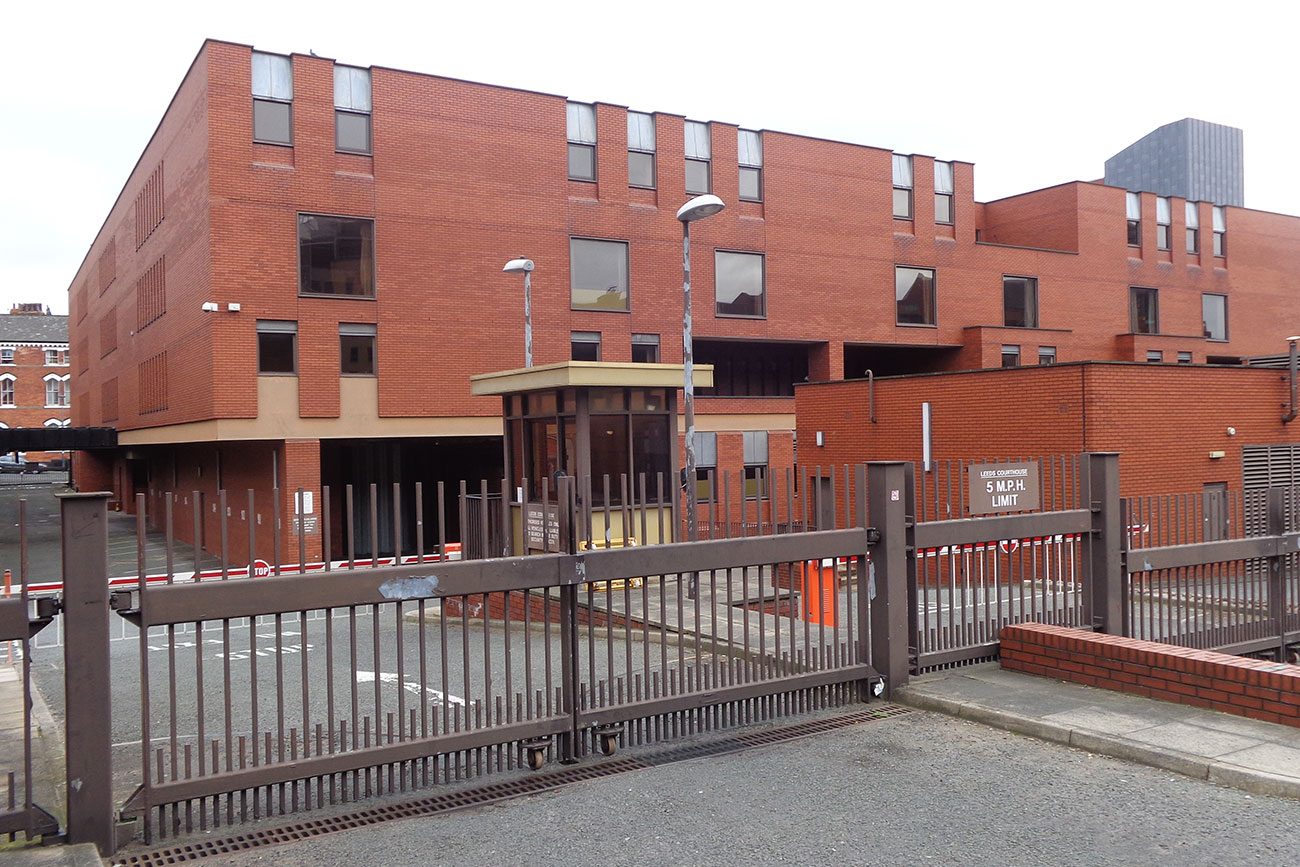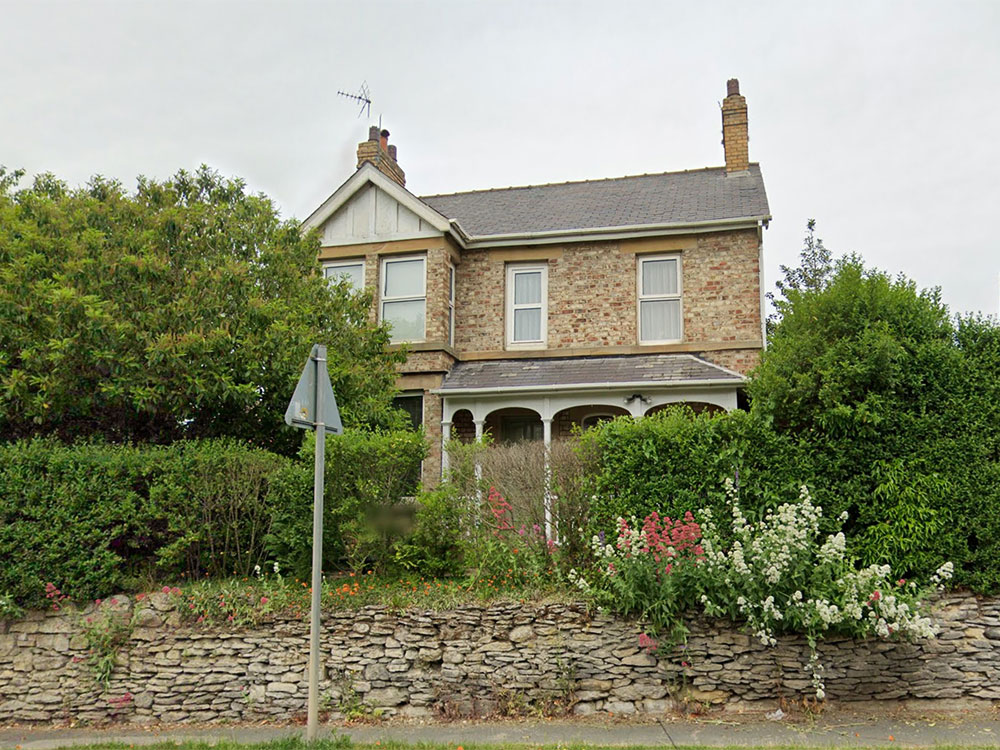An architectural designer butchered an elderly woman in her lavish country home as she called the village shop to order groceries, a court heard.
Shahin Darvish-Narenjbon, 34, banged 88-year-old Brenda Blainey’s head against her kitchen floor, stabbed her in the chest and slit her throat, Leeds Crown Court heard.
Mrs Blainey, a mother-of-two who lived alone at her two-storey home The Grove, on the High Street, Thornton-le-Dale, near Pickering.
She suffered a catalogue of horrific injuries, including a broken neck and fractured skull, which suggested she had been strangled, punched and slapped, said prosecutor Nicholas Lumley.
The brutal killing sent shockwaves through the tight-knit village community where neighbours described Mrs Blainey as “kind”.
The gruesome slaying followed growing tensions in the relationship between the killer and the woman he regarded as his “surrogate mother” and who had taken him into her home, given him his own bedroom and even his own study.
Mr Lumley said that Darvish-Narenjbon, an Iranian national who apparently suffered from delusions and schizophrenia, first met Mrs Blainey – who was suffering from dementia at the time of her death – when he was working at Carluccio’s restaurant in Leeds in 2013.
Mrs Blainey was dining at the restaurant one day when Darvish-Narenjbon offered to visit her at her home on the edge of the North York Moors.
Odd behaviour

Mr Lumley said that following the grisly killing in Mrs Blainey’s kitchen, Darvish-Narenjbon dialled 999 and told an operator he had gone downstairs after hearing a “bang” and found the elderly woman lying on the floor.
When police arrived, Darvish-Narenjbon was dressed only in his underpants and “oddly” asked them for a glass of water. He said Darvish-Narenjbon had been staying at Mrs Blainey’s house in the three days before she was found dead on 5 January last year.
“Shortly before 10.30am on 5 January, Brenda Blainey telephoned the local shop to place an order for groceries,” added Mr Lumley.
“The shopkeeper remembered her call… and taking an order when the call suddenly ended.
“The shopkeeper called her landline 12 times without response. She asked her husband to check on Mrs Blainey when he took her delivery out, but when (he arrived at her home) he was met by a substantial police presence.
“It seems most likely that Mrs Blainey’s call to the shop was cut short because this defendant began his fatal attack upon her.”
Darvish-Narenjbon said he had been “asleep upstairs and was on medication”, and then went downstairs after hearing a “banging noise”. He then found an interior door locked and found Mrs Blainey lying on the floor.
“He said other people must have come to the house and (that) he had seen a red car and a grey car drive away,” said Mr Lumley.
Police and an ambulance arrived and found Mrs Blainey seriously injured and “completely unresponsive” on the kitchen floor. There was no sign of a disturbance and the kitchen table had been set for breakfast.
Darvish-Narenjbon told officers at the scene that he was Mrs Blainey’s “surrogate grandson”. He later told a nurse that he had stopped taking his medication “some days earlier”.
He said he had looked after her “like a nurse” because of her dementia and that he had trouble sleeping in the days before her death.
Voices in his head

A post-mortem revealed that Mrs Blainey had suffered fractures to her neck and skull, bruising to her eyes and face “in keeping with strangulation…and slaps or punching”, bleeding to the brain and heavy bruising to the back of her head.
“It’s most likely that her head was gripped and struck against the hard, unyielding kitchen floor,” said Mr Lumley.
He said the post-mortem results suggested Mrs Blainey had not died straight away but that it was “impossible to say” how long she had remained alive.
Darvish-Narenjbon, from Leeds, was arrested at the scene and charged with murder. He denied the allegation and was due to face trial in December, but admitted an alternative charge of manslaughter due to diminished responsibility.
This plea was accepted by the prosecution and Darvish-Narenjbon was detained in Rampton high-security hospital until sentence yesterday (Monday).
Mr Lumley said that following psychiatric treatment at Rampton, Darvish-Narenjbon now fully accepted killing Mrs Blainey, albeit partly due to “voices in his head” telling him to carry out the slaying.
According to doctors, Darvish-Narenjbon – who has degrees from various institutes of higher learning and was studying for a Master’s in Leeds at the time of the incident – had been suffering from delusions and paranoid schizophrenia since 2008.
He was given leave to remain in the UK in 2015 but was subsequently stripped of this right and then lost his appeal for asylum.
Mr Lumley said that in around 2014, after their inauspicious meeting at the restaurant in Leeds, Mrs Blainey took Darvish-Narenjbon under her wing and gave him his own room. She also “provided him with food and other home comforts” as he continued his studies.
“He would stay with some frequency and she allowed him to use one of the upstairs rooms as a study,” added Mr Lumley.
Around 2016, Darvish-Narenjbon’s then girlfriend noticed a deterioration in his mental health. It was in November that year that he had an argument with Mrs Blainey in which he “lost his temper” and damaged one of her doors.
Delusional man
In 2020, he registered an architecture-and-construction company called Blanca Ltd based at The Grove, Mrs Blainey’s swish, two-storey home in High Street, Thornton-le-Dale.
As part of the registration with Companies House, he named himself as sole director. The business has since been dissolved.
“Their relationship was characterised as (like that of) a grandmother (and) grandson,” said Mr Lumley.
“She would frequently telephone him and send him letters wondering where he was and what he was up to. She exerted some control in the way he lived his life.”
Mrs Blainey even gave him his own car and when he wasn’t staying at her home, he would often visit her and invite her to see him in Leeds or attend ceremonies for his Master’s degree.
Mr Lumley said there was “some tension between (Darvish-Narenjbon’s) mother and Brenda Blainey, and the defendant’s girlfriend and Mrs Blainey”.
“Towards the end of her life, Brenda Blainey became increasingly frail (and) her memory was failing, but she was living independently at home,” he added.
Dr James Stockard, a consultant psychiatrist who is currently treating Darvish-Narenjbon at Rampton, said his patient was suffering from paranoid schizophrenia and delusions at the time of the incident and recommended a restricted hospital order rather than a prison sentence due to diminished responsibility.
When judge Rodney Jameson questioned whether such a delusional man could have had the forethought to clean a weapon and the rationale to give a false account to police, Dr Stockard said this may all be part of Darvish-Narenjbon’s mental instability.
He said that Darvish-Narenjbon may have believed he was “authorised” or “had a licence” to carry out the killing because of the voices in his head.
He said it may have been a reaction to Mrs Blainey trying to get him to change his medication.
He said Narenjbon had delusions about the supposed “malign intentions” of others but insisted he wasn’t malingering to try to avoid a jail sentence.
He added that Narenjbon, of Tinshill Lane, Cookridge, could have cleaned the weapon because he believed “the people against him were coming to get him”.
Judge Rodney Jameson KC said such cases were “notoriously difficult to deal with” and adjourned sentence to Wednesday, February 1, to reconsider the evidence and take any further submissions from the prosecution and defence.
The court was told that were it to be a hospital order, Darvish-Narenjbon would be deported following his detention in the psychiatric unit.
[tptn_list limit=3 daily=1 hour_range=1]
